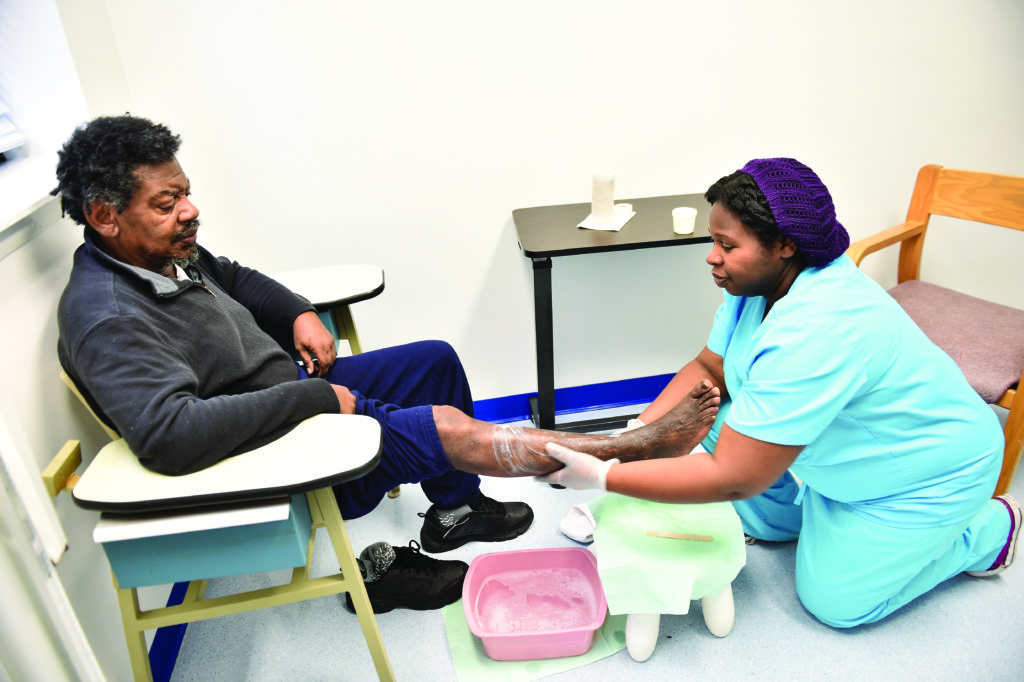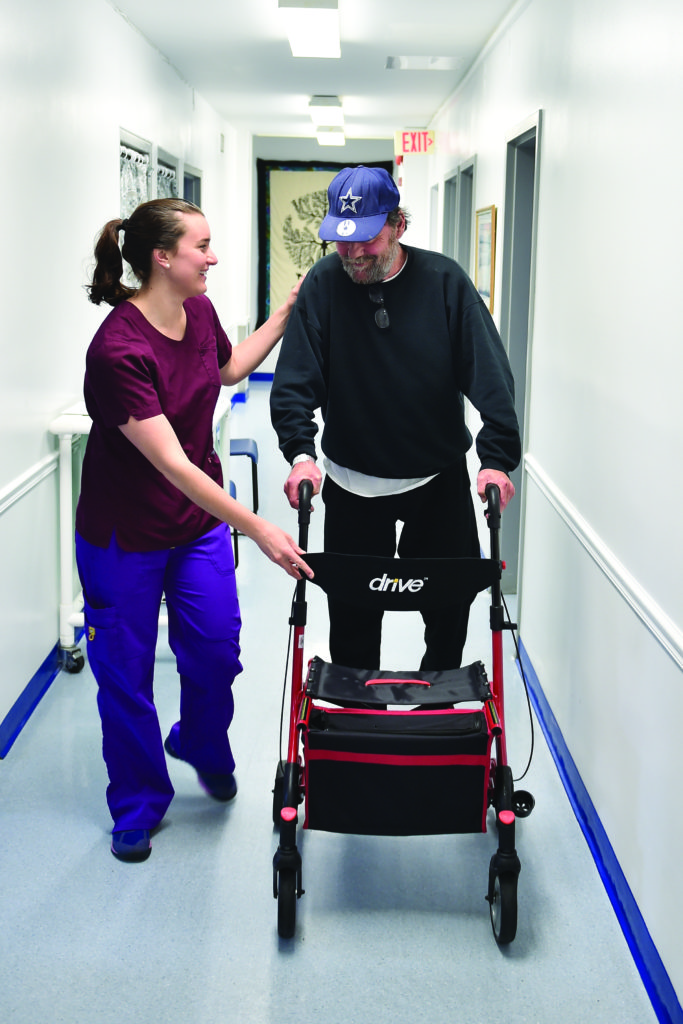Charles was 70 years old when he came to Christ House. Remarkably, he had been living on the streets with hypertension, cancer, diabetes, incontinence, and dementia. When he visited a walk-in clinic, the doctor quickly realized that he was too vulnerable to continue without medical support. The doctor, one of our former year-long volunteers, referred him to Christ House.
Many of our patients are, like Charles, faced with the toll that age and homelessness takes on their minds and bodies. Last year, more than 75% of our patients were at least 50 years old and over 30% were 60 years old or older. The age of homeless persons across the country has been on the rise and with it, further strain on agencies and clinics hoping to meet the needs of an aging population.

A Christ House nurse washes a diabetic patient’s feet to make sure they are clean and clear of debris that can cause dangerous infections.
Homeless persons experience the negative effects of aging at a younger age and higher rate than the general population. In part, this is the result of going months or years without preventative treatment which can control and even eliminate common health problems. Premature aging can also be a consequence of ignoring or mismanaging conditions such as hepatitis C or osteoarthritis. Additionally, substance abuse and lack of basic self-care, including getting sufficient sleep and proper nutrition, can cause significant damage to the body.
By the time our older patients are admitted, nearly all are dealing with two or more chronic conditions simultaneously. Chronic conditions such as COPD, diabetes, or mental illness can make treatment of newer or urgent issues more complicated. Other complications include the loss of mobility, hearing, or vision that ordinarily comes with age. Even more concerning are conditions related to the loss of cognitive abilities such as dementia.
With this, our patients sometimes have difficulty grasping the nature or gravity of their medical conditions. And, like their housed peers, they can have difficulty accepting the idea of a permanent care arrangement.

A Christ House nurse helps an elderly patient with his walker.
Independent living is rarely an option for our older patients who need help managing medications, completing basic activities of daily living, and getting around safely. Our case managers work especially hard to find adequate placement for these individuals as they are more vulnerable to assault or theft on the streets, shelters, and even by family and friends.
Nursing homes or assisted living facilities are usually the best options for these men. Unfortunately, there are challenges to being admitted.
Due to limited space in D.C.’s nursing homes, we most often have to place patients in neighboring states. This extra step requires that we obtain special approval from Medicaid. The admissions process can be further delayed for patients with a history of mental illness who are required to complete a special screening process. Additional complications can arise when a patient does not have a complete medical history, as many formerly homeless individuals do not.
Thankfully, we have developed good relationships with several facilities in the area who continue to take in our patients. However, placements are not always available when we need them. Our case management office often has to call, week after week, to ask if a bed has opened up. During this extended waiting process, the only viable option to maintain a patient’s health is usually to keep them with us until a placement opens.
While Charles was here, we made significant strides toward stabilizing his health. We monitored his blood-sugar levels, took him to outside appointments, and helped with his activities of daily living – bathing, toileting, and getting around safely. We were able to connect Charles with his family who intended to secure long-term care on his behalf.
Men like Charles shouldn’t have to struggle to simply survive on the streets. With your support, we will continue to come alongside the most vulnerable to offer healing and hope.
The above article is from our summer newsletter. Click here to view the full newsletter.






Leave a Reply